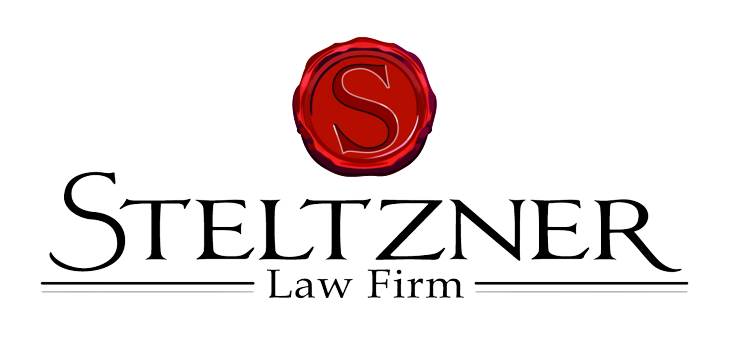The Rock Hill, SC Guide to Estate Planning: Wills, Trusts & Probate

Imagine a family in Rock Hill, gathered on their porch enjoying a warm South Carolina evening. They have worked their entire lives to build a home, save for the future, and create a legacy. A question surfaces about what would happen to it all if they were no longer around. This conversation, while uncomfortable, is one many families have. The uncertainty about how to protect their assets and provide for their children can be a heavy weight. Many people feel that planning for the future is too complex or only for the very wealthy. They worry about family disputes, court battles, and the government making decisions for them. These fears often lead to inaction, which is the biggest risk of all.
This article is designed to be a clear and straightforward guide for our neighbors in North and South Carolina. It will demystify the essential elements of estate planning, probate, and trusts. Our goal is to provide you with the knowledge needed to make informed decisions, offering security and a definite path forward for your family’s future. Gaining an understanding of these topics is the first step toward creating a plan that safeguards your life’s work.
Table of Contents
Estate Planning Basics – Wills, Trusts, and Asset Protection
What is Estate Planning and Why is it Crucial for SC Residents?
Estate planning is the process of arranging for the management and distribution of your property during your lifetime and after you pass away. It is a misconception that this is a practice reserved for the affluent. On the contrary, estate planning is for anyone who has something they want to leave behind and wants to control how it is handled. For South Carolina residents, a proper plan provides a legal framework to protect your family, minimize potential taxes, and specify your wishes with legal authority. It is the definitive way to direct your legacy and spare your loved ones from difficult decisions and potential conflicts during a time of grief. A well-thought-out plan delivers clarity when it is needed most. The Steltzner Law Firm is dedicated to helping families navigate this important process.
The Cornerstones of Your Plan: Wills vs. Trusts
Two of the most fundamental tools in any family estate planning guide are the will and the trust. While they both address the distribution of your assets, they function in very different ways. Understanding their distinct roles is central to developing a strategy that aligns with your personal and financial goals.
What is a Last Will and Testament?
A Last Will and Testament is a legal document that outlines your final wishes. Its primary functions are to name an executor to manage your affairs, appoint legal guardians for any minor children, and specify which individuals or organizations will inherit your property. A will is a foundational document that gives you a voice after you are gone. For residents of the Carolinas, a critical point to understand is that a will must be submitted to the probate court to be validated. This public legal process is how the court confirms the will’s authenticity and grants the executor the authority to act.
How Do Trusts Work?
A trust is a legal arrangement that creates a fiduciary relationship. In this arrangement, a person or institution, known as the trustee, holds legal title to property for the benefit of another person, called the beneficiary. Trusts can be structured in many ways to accomplish specific goals.
The two most common types are Revocable and Irrevocable Trusts. A Revocable Living Trust is created during your lifetime and can be changed or cancelled at any time. A main advantage of this type of trust is that any assets held within it do not have to go through the probate process. An Irrevocable Trust, once created, generally cannot be altered. These are often used for advanced asset protection and to reduce estate tax liability. For people in York County and throughout the state, trusts are a powerful method for keeping your affairs private and avoiding the potentially long and costly probate court system. An experienced asset protection attorney can provide valuable estate planning information on this topic.
What Are Powers of Attorney and Healthcare Directives?
Effective estate planning information also covers what happens if you become unable to make decisions for yourself while you are still alive. This is known as planning for incapacity, and it is a vital part of protecting your interests.
A Durable Power of Attorney is a document where you appoint a person, your “agent,” to manage your financial and legal affairs if you become incapacitated. This person can pay bills, manage investments, and handle property matters on your behalf. Without one, your family might have to go to court to have a guardian appointed, a process that is public, time-consuming, and stressful.
A Healthcare Power of Attorney allows you to designate someone you trust to make medical decisions for you if you cannot communicate with them yourself. This is often paired with a Living Will, which is a document that details your wishes regarding end-of-life medical care, such as the use of life support. These directives are critical components of any South Carolina estate plan, as they give you control over your medical treatment and relieve your family from the burden of making agonizing decisions.

Probate & Estate Administration in North & South Carolina
What is the Probate Process in South Carolina? A Step-by-Step Guide
Probate is the court-supervised process of validating a will, settling an estate’s debts, and distributing the remaining property to the rightful heirs. Many people have heard of probate but are not familiar with the specific steps involved. Here is a general outline of how the process works for Rock Hill residents in York County.
- File the Will: After a person passes away, the executor named in the will files the original document with the Probate Court in the county where the person lived.
- Appoint the Personal Representative: The court formally appoints the executor, who is referred to as the “Personal Representative” in South Carolina. This person receives official authority from the court to manage the estate’s affairs.
- Inventory the Estate: The Personal Representative is responsible for identifying, gathering, and creating a detailed inventory of all the deceased person’s assets, including real estate, bank accounts, investments, and personal property.
- Notify Creditors & Pay Debts: A notice is published to inform any potential creditors of the death. The Personal Representative uses the estate’s funds to pay all legitimate debts, taxes, and administrative expenses.
- Distribute Assets: Once all debts and expenses are paid, the Personal Representative distributes the remaining assets to the beneficiaries as directed in the will.
- Close the Estate: The Personal Representative files final accountings and other required paperwork with the court to formally close the estate.
How Can I Help My Family Avoid Probate in Rock Hill, SC?
Given the time and expense that can be associated with probate, many people seek ways to help their families avoid the court process. There are several effective strategies for achieving this objective. Careful estate planning considerations can make the transfer of your assets much smoother.
- Create a Revocable Living Trust: This is the most popular and effective method for avoiding probate. You transfer ownership of your major assets into the trust during your lifetime. Since the trust owns the assets, not you, they are not part of your probate estate. The person you name as your successor trustee can manage and distribute them according to your instructions without court involvement.
- Use Beneficiary Designations: Many financial accounts, such as life insurance policies, retirement accounts (401(k)s, IRAs), and annuities, allow you to name a beneficiary. You can also add a “Payable on Death” (POD) or “Transfer on Death” (TOD) designation to bank and brokerage accounts. These assets pass directly to the named person upon your death, bypassing probate.
- Own Property Jointly: How you title your property can have significant implications. When you own property with another person as “joint tenants with rights of survivorship,” your share automatically passes to the surviving owner upon your death. This is a common way for married couples to own their home. Understanding the details of property ownership is a key part of both estate and real estate law.

Estate Disputes & What Happens Without a Will
What Happens If You Die Without a Will in South Carolina?
Dying without a valid will is known as dying “intestate.” When this occurs, the state of South Carolina’s intestacy laws will determine how your property is divided. The court will follow a rigid formula set by statute, which may not align with your personal wishes. The state’s plan does not consider the unique relationships or needs of your family members.
For example, the hierarchy typically follows this order: your spouse and children will inherit, followed by your parents if you have no spouse or children, then your siblings, and so on. If you are in a committed but unmarried relationship, your partner will receive nothing under these laws. If you wanted to leave a special gift to a close friend, a charity, or a more distant relative, that will not happen. Without a will, you give up your right to decide who gets what, and the state’s impersonal plan takes over.
What Are the Common Causes of Estate Disputes and Litigation?
Even with a will in place, disputes can arise. Estate litigation can be emotionally and financially draining for a family. An experienced law firm like the Steltzner Law Firm understands the common triggers for these conflicts. Being aware of the potential issues can help you create a plan that minimizes the risk of a legal challenge.
- Undue Influence: This occurs when there are allegations that the deceased person was pressured or manipulated by someone in a position of trust to change their will for that person’s benefit.
- Lack of Capacity: This is a claim that the deceased was not of sound mind (lacked testamentary capacity) when they signed the will. For a will to be valid, the person must understand they are signing a will and generally know the nature of their property and who their heirs are.
- Disagreements Among Heirs: Conflicts frequently arise between beneficiaries over the interpretation of the will, the division of personal property, or the actions of the Personal Representative. Sometimes, an executor may have to sell property, a process that requires a formal real estate closing, which can be a point of contention.
How a Proper Estate Plan Prevents Family Conflict
One of the greatest gifts you can give your family is a clear, well-drafted estate plan. This is an act of love and responsibility. A plan created with professional guidance minimizes ambiguity and clearly documents your intentions. It provides a legal roadmap for your family to follow, which greatly reduces the chance of arguments during an already emotional time. The Steltzner Law Firm, with over 21 years of experience, has seen firsthand how a solid plan can preserve family harmony. By making your wishes legally explicit, you remove the guesswork and help your loved ones work together through a difficult transition.
Conclusion
Protecting your family’s future is one of the most important actions you can take. A plan that includes a will or a trust, along with powers of attorney for finances and healthcare, is the most reliable way to protect your assets, avoid the public probate process, and prevent disagreements among your loved ones. The Steltzner Law Firm is here to help.
If you live in Rock Hill, Fort Mill, or anywhere in the Carolinas, navigating the complexities of estate and probate law can feel overwhelming. To ensure your wishes are honored and your loved ones are cared for, schedule a consultation with our experienced estate planning team today.
